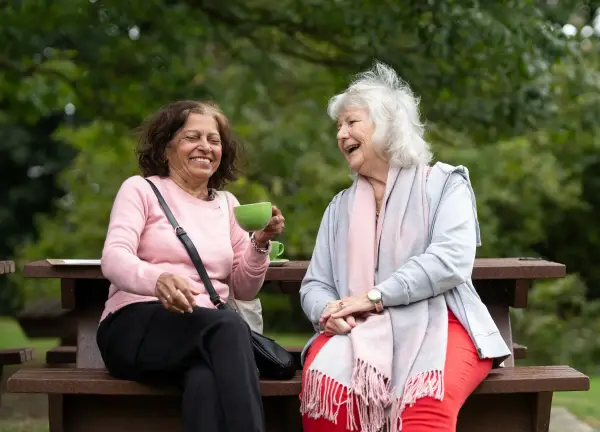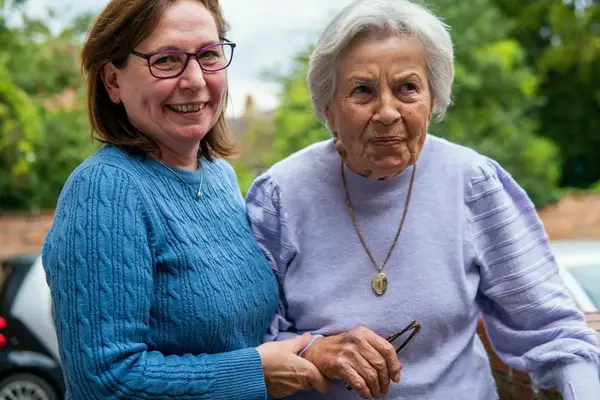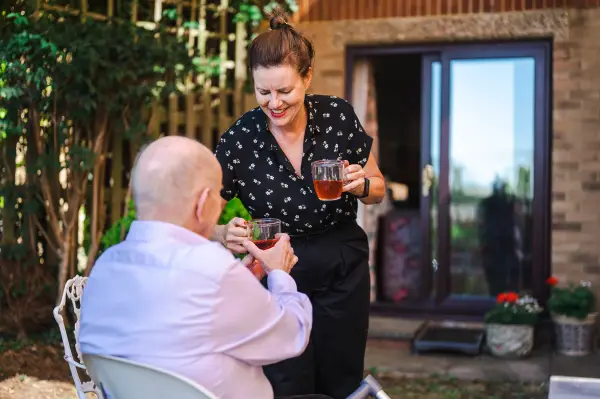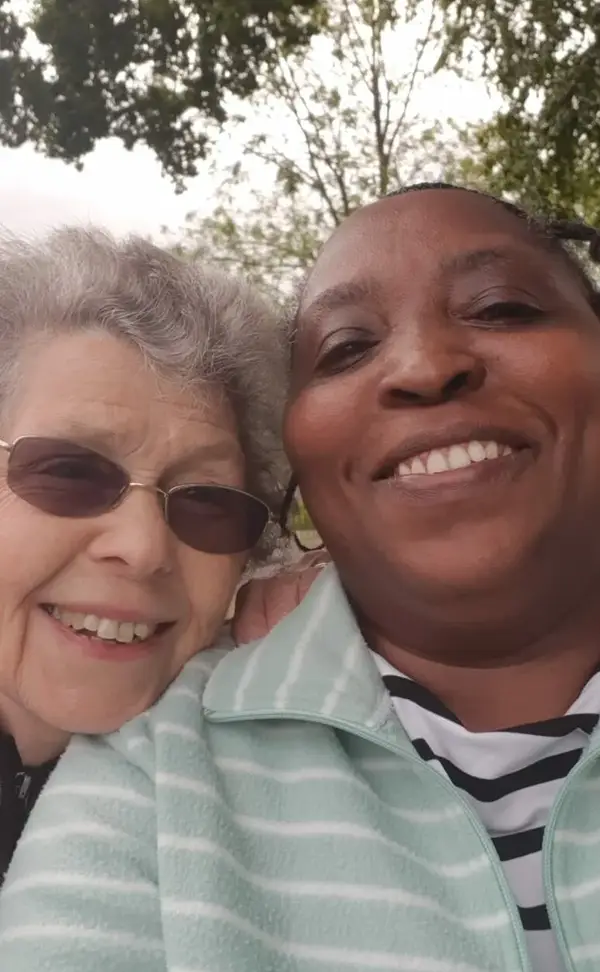Dementia care at home: Sue finds relief for her mum
When 24-hour care is needed, the decision to keep a loved one at home is challenging. Sue shares why she chose Elder for her mum’s dementia care, prioritising her happiness.
Find a carerCall us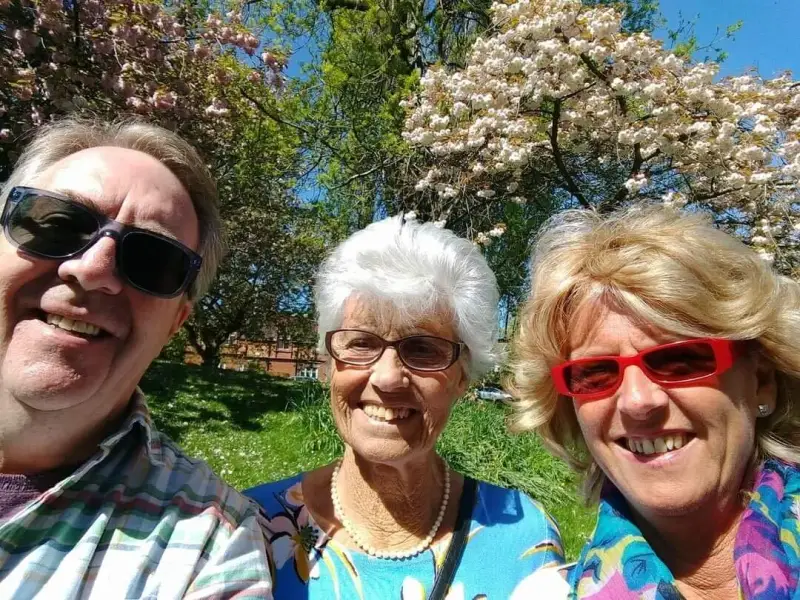
Why Sue chose dementia care for her mum
In this video, Sue shares her story about arranging dementia care for her mum. Hear how Elder helped her mum remain happy in the home she loves with her dog, while allowing Sue to step back from the carer role.
Familiar surroundings: Why home care is ideal for dementia
For individuals with Alzheimer's and other forms of dementia, maintaining a familiar environment is often critical to well-being. Sue's story highlights how Elder made it possible for her mother to receive 24-hour support without the stress of moving.
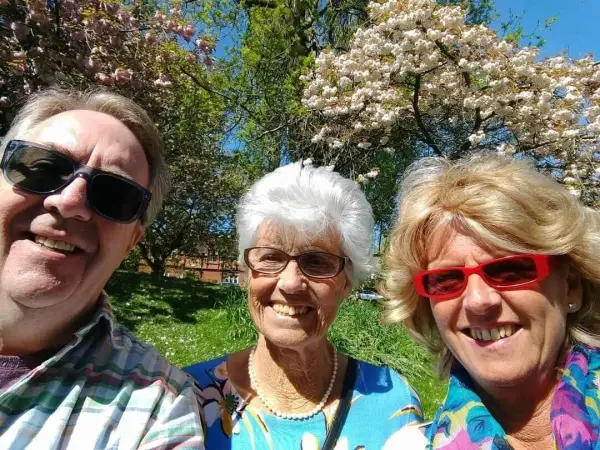
The relief of removing the carer burden
Sue initially didn't want to move her mother into a care home but found the pressures of full-time care overwhelming. Turning to Elder immediately addressed this carer burnout, allowing Sue to reclaim her relationship with her mother:
"I didn't want to move her into 24-hour care, so got in touch with Elder. And that was the first time, and they were great. They took the pressure right off me."
The live-in solution fundamentally changed Sue's role:
"I was seeing my mum as my mum and not as a carer, so that was ideal for me."
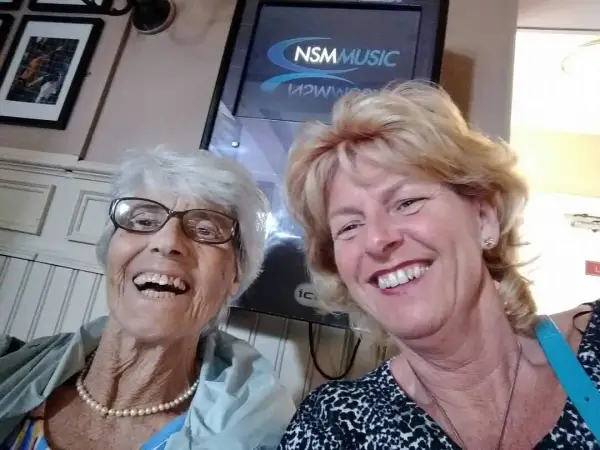
Happiness in her own home
Allowing her mother to remain in her house with her possessions was a key priority for Sue, especially as the Alzheimer's advanced. The consistency of her home environment was crucial for her mum's happiness and contentment:
"It's lovely for them to be in their own home, have their own familiar pictures and, you know, their own television and their own bed, and it's lovely."
This choice ensured her mother's unique needs were met, down to her loyal companion:
"We were able to stay in our own home and she was happy with that and she kept her dog, and her dog used to sleep in bed with her... and she was, she was really happy."

Support that advanced with the illness
The home care plan was flexible enough to adapt as her mother's condition progressed. The continuous presence of a live-in carer ensured that support was always available, regardless of the stage of the illness:
"She had Alzheimer's and in the early stages, she was able to understand everything. As the Alzheimer's advanced, she was less able and needed more care, but we were able to stay in our own home."
More customer stories about dementia care
Read more stories from families who have chosen live-in care for their loved ones living with dementia.
Learn more about our services
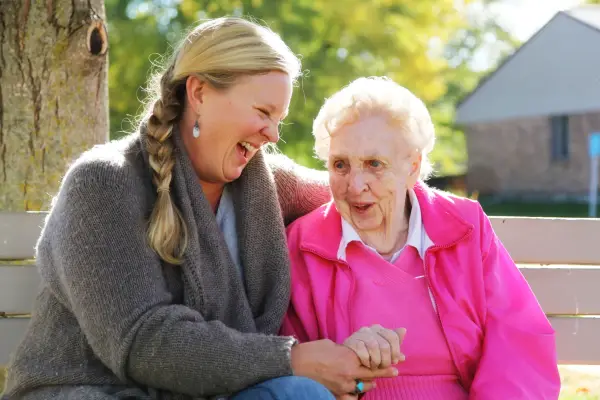
Live-in care
Long-term 24-hour support
- A carer lives in the home to provide round-the-clock support
- Suitable for people living with conditions like dementia, reduced mobility, etc.
- For long-term care needs
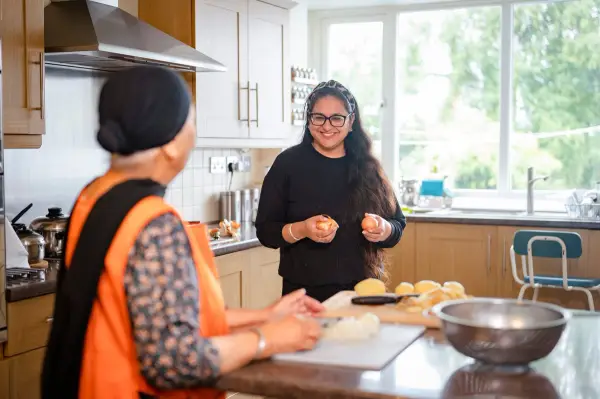
Respite care
Temporary 24-hour support
- A carer moves in for a few days to provide round-the-clock support
- Suitable to cover for a main caregiver or for a temporary increase in care needs
- Minimum duration of 3 days
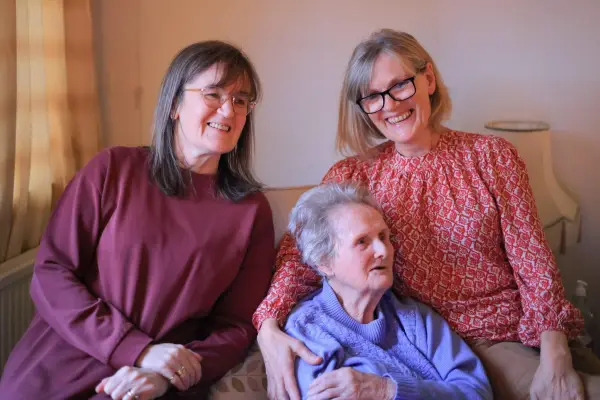
Visiting care
Flexible home visits
- Book as many hours as you need for help in the comfort of your home
- Support with everyday tasks like grooming, walks, cooking, etc.
- From as little as 1 hour per week
